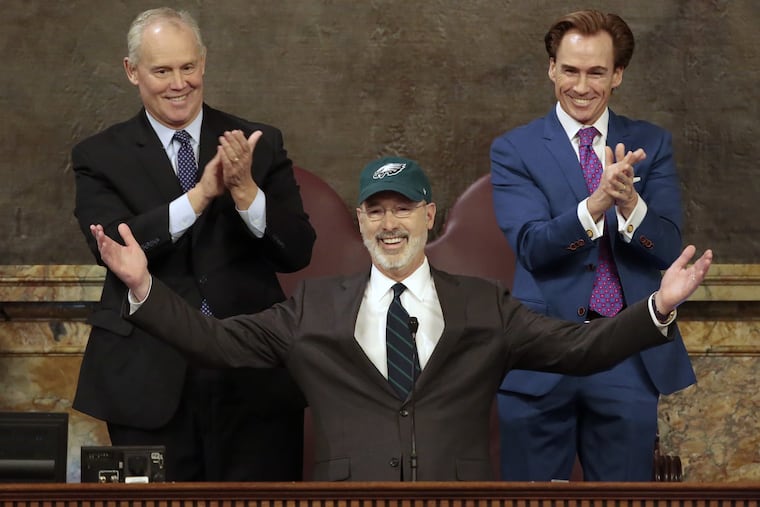Public shut out of Pa. budget talks | Editorial
Yes, Pennsylvania's political leaders held budget hearings and no, we don't want to hear bickering. But we do deserve to hear how the people who control our tax dollars make their decisions as those decisions are being made.

Lawmakers have been uncharacteristically silent during the current state budget process, with vague assurances that "things are chugging along." But one thing has been clear from the moment Gov. Wolf in February delivered the shortest budget address in recent years: The state's Democratic governor and Republican-controlled legislature agreed that they didn't want to remind the public of their past rancor over how to spend our tax money. They are poised to have a budget agreement in the next few days, by the deadline.
This might be considered good news, given that they have not passed a single budget on time in any of the last three years. The worst spectacle was the impasse of 2015 – which wasn't settled until March 2016. According to a study by the County Commissioners Association of Pennsylvania, counties spent an average of $12 million of their own funds to keep themselves afloat during the impasse. And, schools wasted money on debt service to take out loans to keep the schools open.
But the delays of past years accomplished one thing: Noisy and heated debates on the state's priorities, including how to deal with a $2 billion deficit, whether to raise funds from gambling, sales taxes, borrowing or other sources.
This year's silence is not a good sign. It is fleeting and tied to the upcoming election. All 203 House seats, half of the 50 Senate seats and the governor's seat are up in November.
The silence also means that important issues that people care about are not addressed in the roughly $32.7 billion budget deal announced Tuesday.
Wolf proposed hiking the $7.25 an hour minimum wage to $12, which he projected would save $100 million in social service costs. The governor proposed a severance tax on natural gas drilling to raise $250 million.
Republican leaders rejected both, even though there was a bipartisan bill calling for the severance tax. Property tax relief isn't in the deal either, so small towns are still going have to rely on state cops because they can't afford their own police.
Like prior budgets, this one is likely to force local governments to raise property taxes to cover services.
Politicians can rightly claim that they held budget hearings, but they didn't include the public in the back rooms where the real deal was done. We deserve to hear how the people, who control our own tax dollars, make their decisions while those decisions are being made.
Instead of robust debate in the Capitol, voters will be subjected to campaign rantings through the election season. If past elections are any guide, important issues will be trivialized with misleading and in some cases downright false statements.
As for this budget, both sides walked out with talking points for their campaigns. Wolf argues that he's raised funds to schools, and tamed the fiscal beast starting in office with a $2.5 billion deficit and showing a modest $55 million surplus without slashing services. The GOP takes credit for keeping taxes down.
Lawmakers putting the people's business under a cone of silence do not advance the public's understanding of complex issues — or even their own.